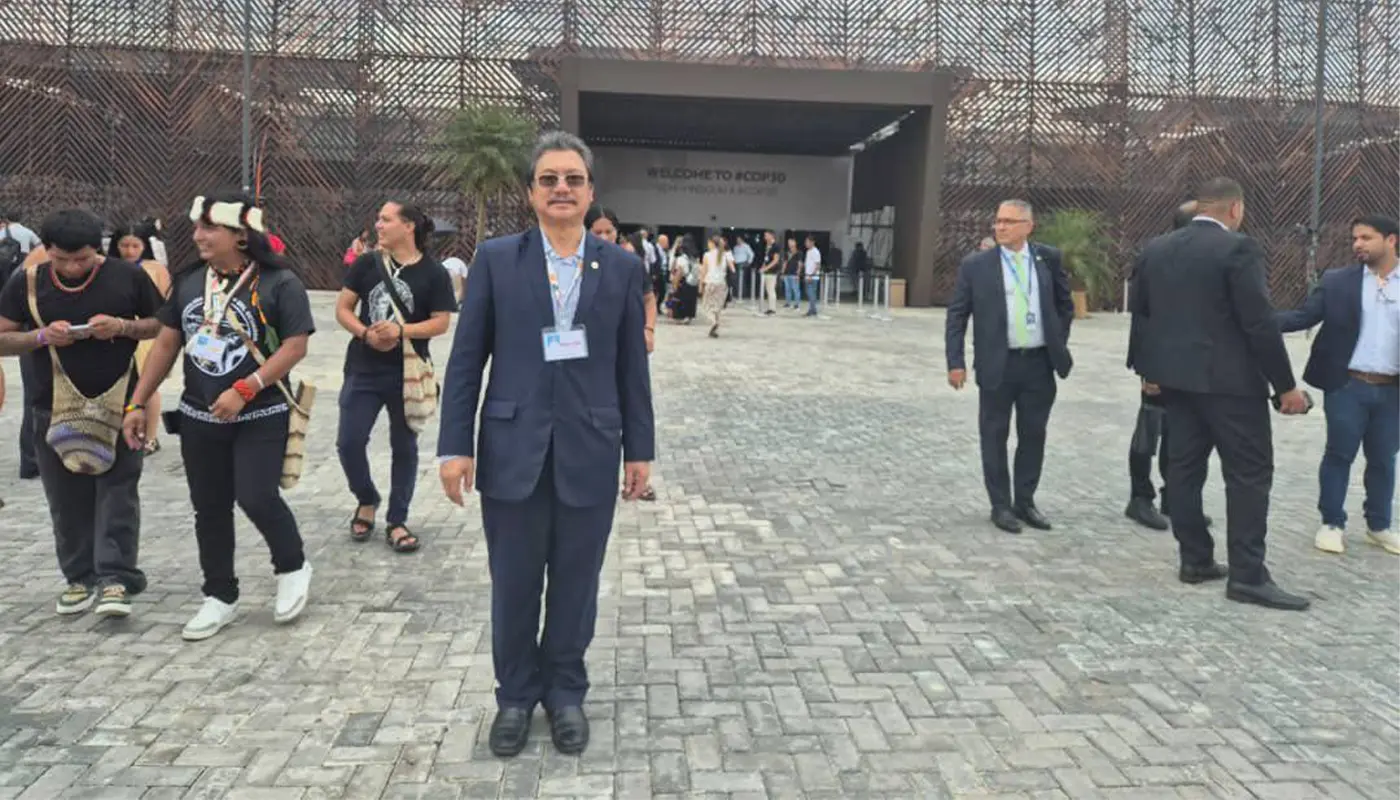BRAZIL – Sarawak has reaffirmed its commitment to sustainable growth and renewable energy transition at the Belém Climate Summit, where global leaders gathered to accelerate climate action.
Deputy Minister for Energy and Environmental Sustainability, Datuk Dr Hazland Abg Hipni, led Sarawak’s delegation, accompanied by four ministry officers and 20 representatives from Malaysia’s Ministry of Natural Resources and Environmental Sustainability.
He is scheduled to speak at the Science Panel for Borneo and deliver a keynote address titled “The Sarawak Journey”.
His presentation will outline Sarawak’s Post-COVID-19 Development Strategy (PCDS 2030), which integrates clean energy transition, forest conservation, and sustainable economic growth.
The plan aims to maintain at least 60% renewable energy capacity by 2030, expand hydropower, solar, and hydrogen initiatives, and reduce carbon emissions through electrification and green infrastructure.
Dr Hazland emphasised that Sarawak’s participation demonstrates its leadership in balancing development with environmental stewardship.
“Our policies are aligned with global climate goals and the Paris Agreement,” he said, noting that Sarawak’s renewable energy projects serve as models for regional sustainability.
The summit, hosted for the first time in the Amazon rainforest city of Belém, was inaugurated by Brazilian President Luiz Inácio Lula da Silva.
Lula launched the Tropical Forest Forever Facility, a $125 billion fund designed to protect forests, which he described as “worth more standing than cut down”.
He stressed that accelerating energy transition and safeguarding biodiversity remain the most effective ways to mitigate climate change.
With 153 delegations in attendance, the summit underscored the importance of biodiversity-rich regions such as the Amazon and Borneo in stabilising global ecosystems.
United Nations Secretary-General António Guterres also warned that exceeding the 1.5°C warming threshold would be a “moral failure and deadly negligence”.
Sarawak’s engagement signals its readiness to share expertise in hydropower development, carbon management, and nature-based solutions.
These initiatives, combined with its renewable energy infrastructure, position the state as a regional leader in sustainable progress.
By participating in Belém, Sarawak reinforced its broader vision of contributing to global climate solutions through collaboration, innovation, and green growth.
The state’s approach demonstrates that economic development and environmental responsibility can advance together, offering a blueprint for other regions navigating the low-carbon transition.





